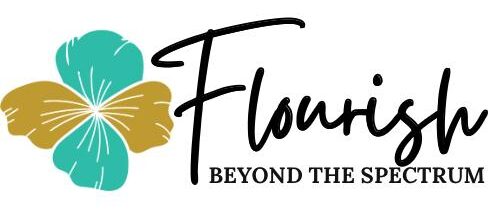Toxin-Free Living: Supporting Autism Through a Safer Environment

In today’s world, children are exposed to various environmental toxins daily—whether from household cleaners, pesticides, or even personal care products. For children with autism, these toxins can pose significant health challenges. Many struggle with detoxifying harmful substances effectively, leading to increased sensitivity, inflammation, and behavioral changes. By reducing environmental toxins, parents can take a crucial step toward promoting better health and supporting their child’s holistic well-being.
How Toxins Affect Children with Autism
Children with autism are often more sensitive to toxins in their environment. Chemicals found in everyday products—such as cleaning supplies, laundry detergents, and synthetic fragrances—can interfere with brain function, trigger inflammation, and aggravate behavioral symptoms. Research suggests that some children with autism have impaired detoxification pathways, meaning their bodies struggle to eliminate these toxins efficiently. This buildup can worsen symptoms such as irritability, hyperactivity, and sleep disturbances.
The Importance of a Low-Toxin Environment
By switching to non-toxic, organic products, you can dramatically reduce your child’s toxic load. Cleaning your home with natural alternatives, such as vinegar, baking soda, and essential oils, helps create a safer environment. Opting for organic produce free from pesticides further reduces the intake of harmful chemicals. Similarly, choosing personal care products made from natural ingredients (free from parabens, phthalates, and synthetic fragrances) can minimize your child’s exposure to toxins through their skin.
Steps to Detoxify Your Home
Here are some easy steps to start reducing environmental toxins:
- Switch to Non-Toxic Cleaners: Replace chemical-based cleaners with natural alternatives like vinegar, baking soda, and castile soap. You can also look for eco-friendly, non-toxic cleaning products labeled as safe for sensitive individuals.
- Choose Organic Produce: Whenever possible, select organic fruits and vegetables to reduce pesticide exposure. Wash produce thoroughly to remove any surface chemicals.
- Use Natural Personal Care Products: Opt for organic shampoos, soaps, and lotions free from harsh chemicals and synthetic fragrances. Look for labels that mention “paraben-free” and “phthalate-free.”
- Eliminate Fragrances: Many air fresheners, candles, and perfumes contain harmful chemicals. Choose essential oils or non-toxic air purifiers.
In addition to reducing environmental toxins, you can support your child’s natural detoxification process by promoting healthy habits:
- Hydration: Ensure your child drinks plenty of water to help flush out toxins.
- Nutrition: A diet rich in fiber, antioxidants, and nutrient-dense foods can support the liver and kidneys, aiding the body’s detox efforts.
- Sweating: Encourage physical activity or use safe practices like warm baths to promote sweating, a natural way for the body to release toxins.
By reducing your child’s exposure to environmental toxins, you’re not only creating a safer home but also supporting their overall health and development. Holistic healing begins with nurturing a clean, toxin-free environment, allowing children with autism to thrive in both body and mind.
🌿 Want to learn more about how gut health can support your child’s journey?
✅ Book a 15-minute free consultation with Dr. Lyonie Charles.
✅ Follow our Facebook page for more nutrition tips and gut health insights.
✅ Join our community to connect with other parents on similar journeys.
Together, we can create a healthier, toxin-free space for children to flourish!

